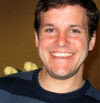- Everyone likes to learn, work, and progress
- Everyone wants a job they feel completes them
- Everyone is smart enough to examine oneself
A Sad Life
The recession has uncovered flaws with companies and individuals. Companies with bloated systems, failing markets, and those lacking direction have been wiped out. Individuals with bloated systems, failing markets, and those lacking direction have been wiped out.
Let me describe the individual with the worst prospects in the current economy, I'll call him "John" and the company "SouthTrust":
- John graduated college
- John started working at SouthTrust when he was 22
- John is now 48
- John is middle management at SouthTrust
- John knows middle management
- John earns $90,000 / year
- John spends $90,000 / year
- John hasn't made a key decision for the company in 18 years
- John hasn't talked to a customer in 18 years
- John hasn't talked to someone else doing his job in another company for 20 years
This fabled "John" stalled. There was an illusion of success long ago, but now it's escaped. John has the same faults as companies currently failing: he's bloated, failing, and lacking direction.
That's the saddest image I could imagine: John blew away his options.
John's Faults
Pop quiz: what enables the greatest happiness? Options.
Pop quiz: what makes people the happiest? Exercising options which enable someone to learn, work, progress, and explore.
John, whom I described above, has no options. He can't transfer his skills easily. He has to keep his current job: his lifestyle depends on it. He limited his options by stagnating professionally. He limited his options by structuring his life to require he continue to work. He limited his options to change.
The Happy Life
The happy life would structure life to maximize options.
Money
Receiving cash creates options. Spending cash reduces options. Creating debt (i.e. using your credit card) reduces your future options more than spending cash. Creating an expensive lifestyle reduces options.
Knowledge
Learning creates options. Being a master of a field creates options. Practicing your knowledge creates options. Sitting on your ass playing video games reduces options (what. . . really? If you want to know why, look at "Time.")
Knowledge creates more options than does money. That's why parents are so willing to send children to college. The $40,000 spent for knowledge is more valuable than the money. Why do you think colleges raise tuition, yet people continue to attend?
Time
Since time only goes in one direction, each day that passes reduces options. You have time in your life to do one less thing. Of all the things you can change, this is the one that should ring your bell. You can change this: it's called "now." Do you want to make a change? Make it now. Then only good choice is one that increases your options now.
Networking
People connecting with others creates options. Connections are as valuable as knowledge and time. Companies pay good money for connections. Please pay good money for connections.
Summary
When making a decisions on your actions, choose the one creating the most options. Look far enough in the future, and look out for cul-de-sacs in your decision tree. John, above, reached a cul-de-sac. His next decision creating the greatest number of options is to go back the way he came.

No comments:
Post a Comment